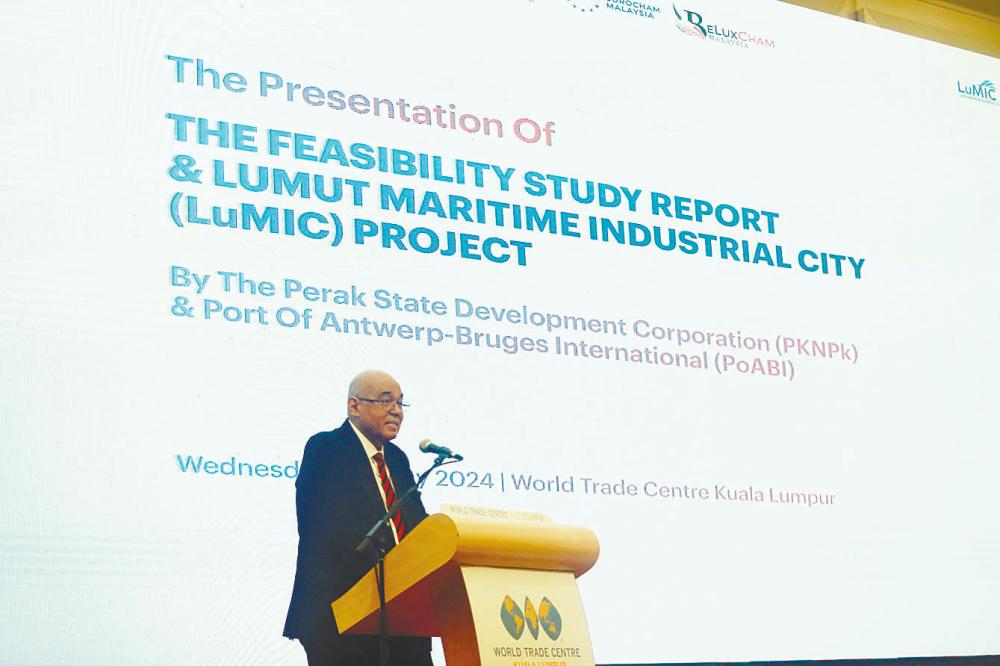PETALING JAYA: Perak is poised for a promising future with the unveiling of the Lumut Maritime Industrial City (LuMIC) feasibility study, set to redefine the region as a pivotal hub in Malaysia's maritime industrial sector.
The development proposal will be formalised upon the completion of a feasibility study targeted by early 2025, conducted by Perbadanan Kemajuan Negeri Perak (PKNPk) and Port of Antwerp-Bruges International (PoABI) for LuMIC, which assessed the attractiveness in the port and maritime sector in the state and Malaysia.
The LuMIC project is expected to attract significant foreign direct investment (FDI) and local investment, catalysing economic growth and social development in the region.
The completion of an eight-month feasibility study, conducted as the inaugural phase of a €1.9 million (RM9.5 million) grant from the European Union in 2023, highlights the collaborative endeavours between PKNPk and PoABI in evaluating Perak's prospects within the port and maritime sector, and fostering connectivity between Europe and Asia.
The report was presented by PoABI to key stakeholders, including representatives from federal ministries, the Perak state government, as well as local and international industry players from maritime, port, logistics and industrial sectors.
The report focused on six key areas – methodology, connectivity, FDI, trade and cargo, governance and roadmap.
Perak State Infrastructure, Energy, Water and Public Transport Committee chairman Datuk Seri Mohammad Nizar Jamaluddin, representing the Menteri Besar of Perak, said: “In line with our Perak Sejahtera 2030 vision, we are eager to generate positive multiplier effects for Perak, thereby contributing to the nation’s socio-economic development through the creation of job opportunities, global market access, and improved connectivity. Rest assured, the Perak state government stands fully committed and supportive to ensure the successful development of the LuMIC project.”
PKNPk chief executive Datuk Redza Rafiq Abdul Razak said the availability of data from the feasibility study further solidifies the potential of Perak as recognised by PoABI from the onset and together they look forward to charting a comprehensive roadmap ahead as they shape a sustainable maritime industrial area.
Belgium’s ambassador to Malaysia, Peter Van Acker, said, “Given the increasing connectivity between Europe and Asia, LuMIC plays a crucial role as part of our international collaboration in this region. This is backed by the strong long-standing ties between our nations and the shared commitment to foster impactful, sustainable development.”
PoABI managing director Kristof Waterschoot said, “The findings provided valuable insights and cemented their confidence in Lumut and Malaysia.”
He added that the fact-finding and analysis via the feasibility study were crucial for them to outline a framework that aligns with Perak’s aspirations as a maritime transportation centre.
The inaugural phase of the feasibility study was undertaken from July 2023 to February 2024. PoABI provided expertise, managed the project and was responsible for the findings and report, while PKNPk contributed crucial local insights and networking with relevant stakeholders.
Looking ahead, Phase 2 of the feasibility study will focus on the development of a green energy assessments, and the formulation of a master plan and business plan.









